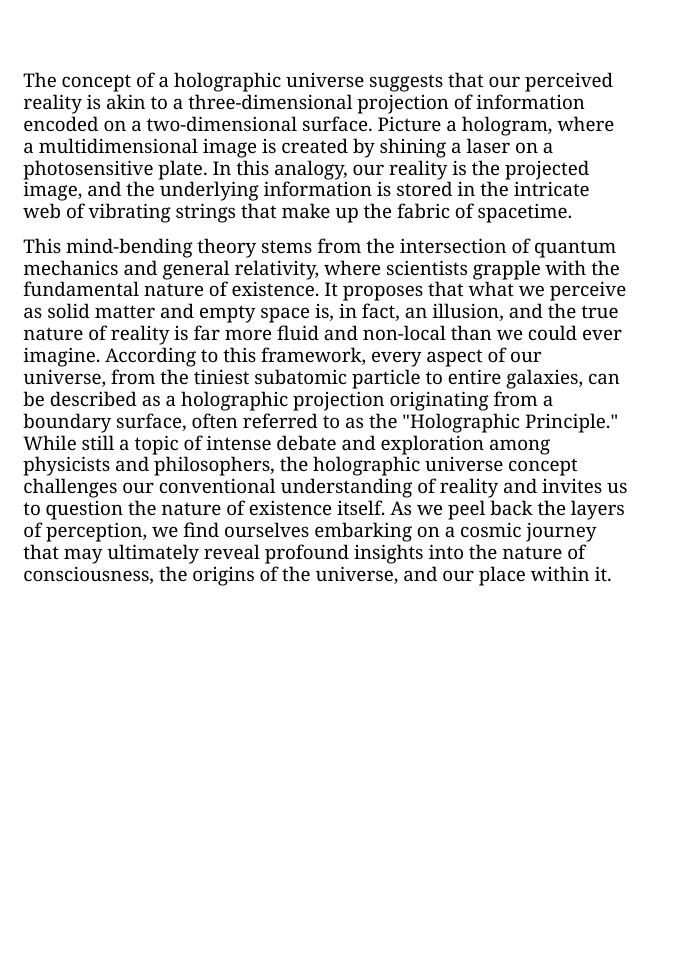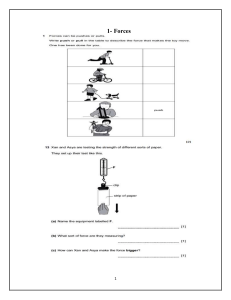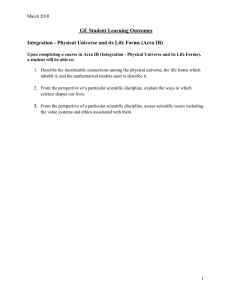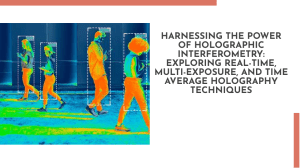
he concept of a holographic universe suggests that our perceived T reality is akin to a three-dimensional projection of information encoded on a two-dimensional surface. Picture a hologram, where a multidimensional image is created by shining a laser on a photosensitive plate. In this analogy, our reality is the projected image, and the underlying information is stored in the intricate web of vibrating strings that make up the fabric of spacetime. This mind-bending theory stems from the intersection of quantum mechanics and general relativity, where scientists grapple with the fundamental nature of existence. It proposes that what we perceive as solid matter and empty space is, in fact, an illusion, and the true nature of reality is far more fluid and non-local than we could ever imagine. According to this framework, every aspect of our universe, from the tiniest subatomic particle to entire galaxies, can be described as a holographic projection originating from a boundary surface, often referred to as the "Holographic Principle." While still a topic of intense debate and exploration among physicists and philosophers, the holographic universe concept challenges our conventional understanding of reality and invites us to question the nature of existence itself. As we peel back the layers of perception, we find ourselves embarking on a cosmic journey that may ultimately reveal profound insights into the nature of consciousness, the origins of the universe, and our place within it.



